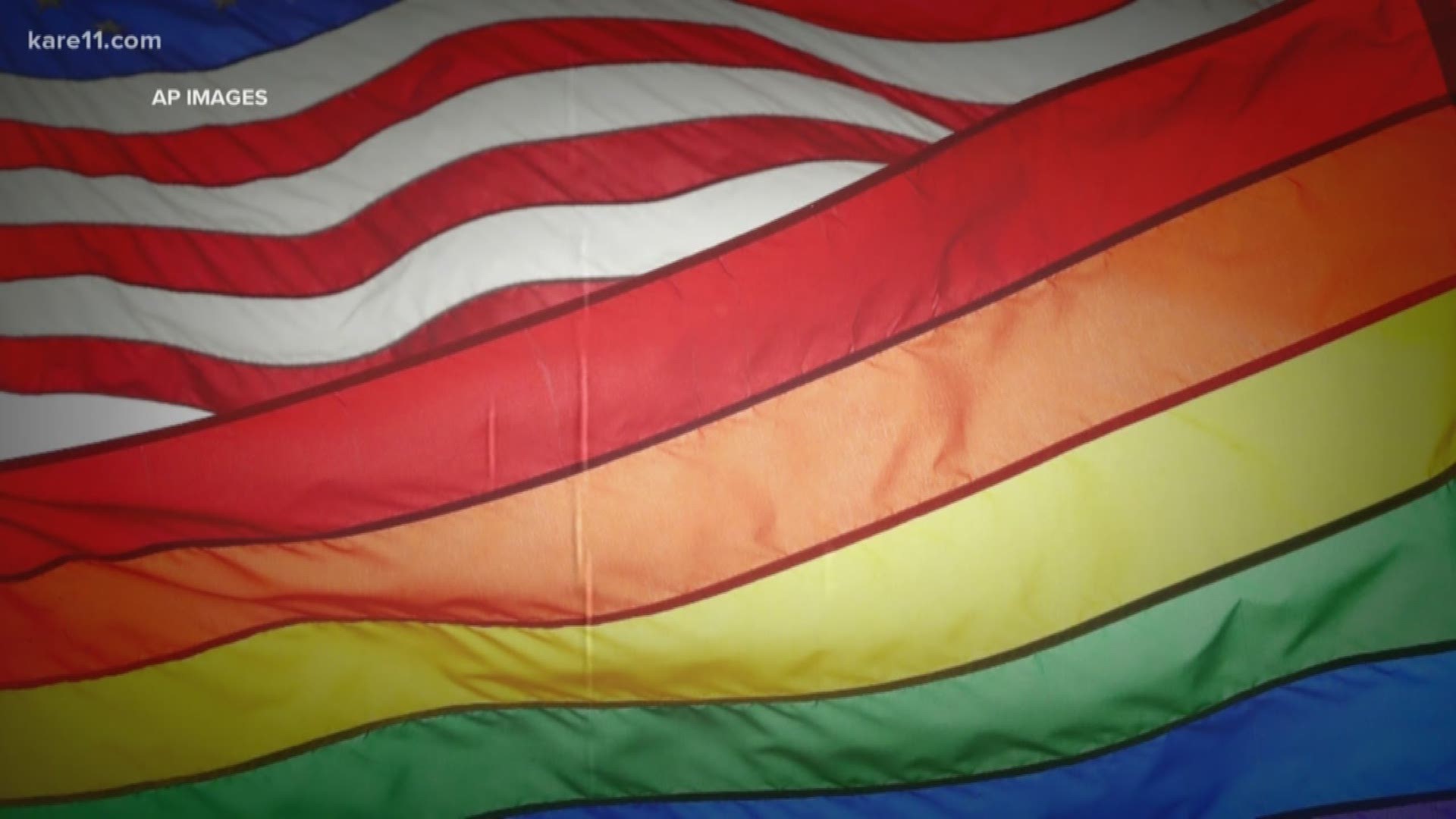Every day, millions of Americans go to work knowing they can't be legally fired because of their gender, race, or religion.
But the same protection isn't guaranteed for folks who are gay, lesbian or transgender.
On Monday morning, the Supreme Court announced that it will weigh in next year on whether or not LGBT people should be included in the employment protections of the Civil Rights Act.
The Civil Rights Act of 1964 prohibits employment discrimination on the basis of "race, color, religion, sex or national origin."
LGBT rights groups say, LGBT people are included in that under the definition of sex discrimination.
Others say no, sex does not include gender identity or sexual orientation.
Three federal courts have recently said LGBT people are entitled to this protection, and the Supreme Court said Monday it would step in and decide.
“This is a very big moment in the Supreme Court as to their position in regards to LGBT people. Are they going to bring them into the fold of human beings that have rights in the workplace or will they say no, you don't get those rights,” said Humphrey School of Public Affairs Political Science Professor Larry Jacobs.
The last time the court weighed in on gay rights it was a watershed moment.
In a 5-4 decision in 2015, the highest court in the country legalized same sex marriage.
Since then support for gay rights has grown even larger.
Last year a USA Today poll showed 67 percent of Americans approve of same sex marriage.
So, it is an interesting time to consider a question of whether a gay or transgender person should be discriminated against - for being that person - at work.
“One of the challenges for the Court is the past Supreme Court has made rulings that set precedent about marriage, but this is a new Supreme Court with two new very conservative Justices on it. The Court has changed, and the question is will this Supreme Court respect the general shift in the Supreme Court,” Jacobs said.
This area has long been legally confusing.
Twenty-one states, Minnesota included, have passed laws explicitly prohibiting workplace discrimination based on sexual orientation and gender identity.
Twenty-six states, have not.

